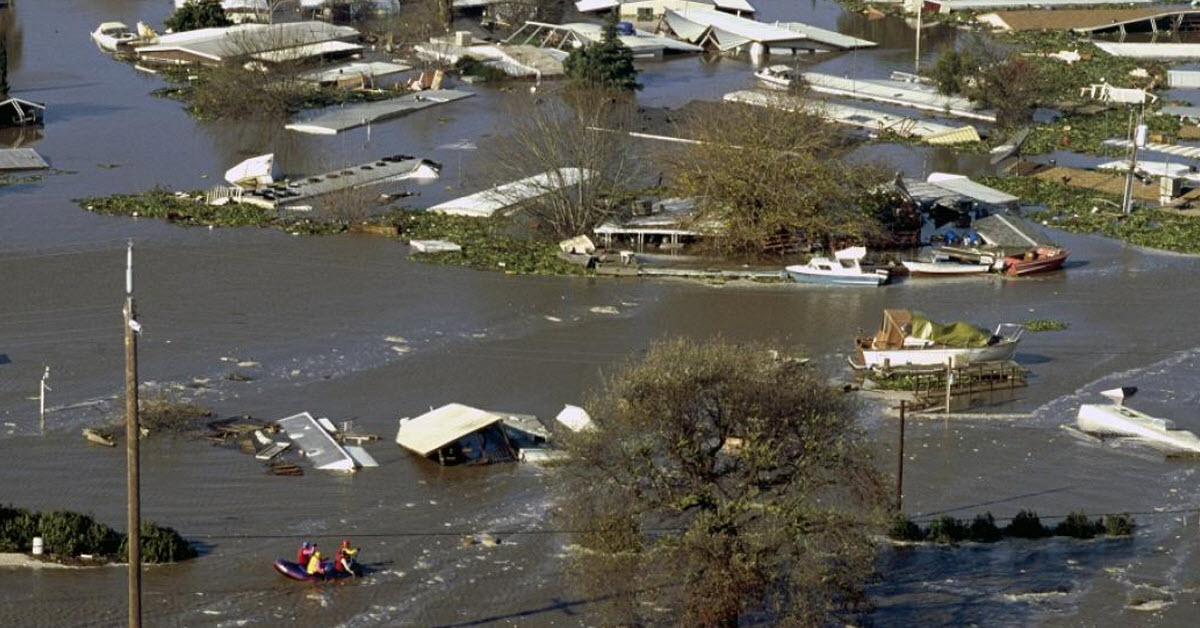One of the many natural disasters that can have an immediate effect and effects that linger for quite some time is flooding. This is an issue that can take place on a localized level but it may also include a widespread area in some cases. Being prepared in advance is your best opportunity for surviving such a natural disaster successfully. Acting when a flood occurs is also an important factor to consider.
Typically, any type of flood will be reported by the National Weather Service either in your local area or on more of a widespread area. They will give you some information as to what you can do, including routes to take that will help you to avoid the rising floodwaters. It is important not to wait until the flood has overtaken your area, as it can make it difficult to survive. If notice of a flood watch is given, it means that conditions are right for flooding to occur. If a flood warning is issued, it means that the flooding is already happening or is imminent and you should take action immediately.

One important factor for surviving a flood is having an emergency preparedness kit ready in advance. This would include enough food and water for everyone in your family to last a minimum of three days. You should also have first-aid supplies, a flashlight and an alternate means of communication. Along with preparing physically, you also need to prepare mentally and have an emergency plan in place for your family. If possible, meet in a safe area but if you are separated, be sure that you know where to meet up once you are all able to reach safety.
If a flood watch is given, you should begin preparing the home immediately. Any furniture that is outside should be brought inside and important documents should be taken to the highest level possible. Electrical appliances should be disconnected and if you are standing in water, do not touch any electrical appliances. Electricity and gas should be shut off at the valve or main switch to prevent the possibility of explosions and fire.

After the flood has subsided, it is important to pay attention to information from the authorities in order to determine when you should go home. Floodwaters may have gone down in a local area but they may still be a problem in many other areas. Be aware that roadways and walkways may have eroded during the flood so it could make both driving and walking hazardous. Avoid any standing water due to the possibility of downed power lines energizing the area.
The effects of a flood can be devastating but with proper planning, it is possible to get through it successfully. At that point, you can begin with the cleanup of your home and work on getting your life back to normal again.
